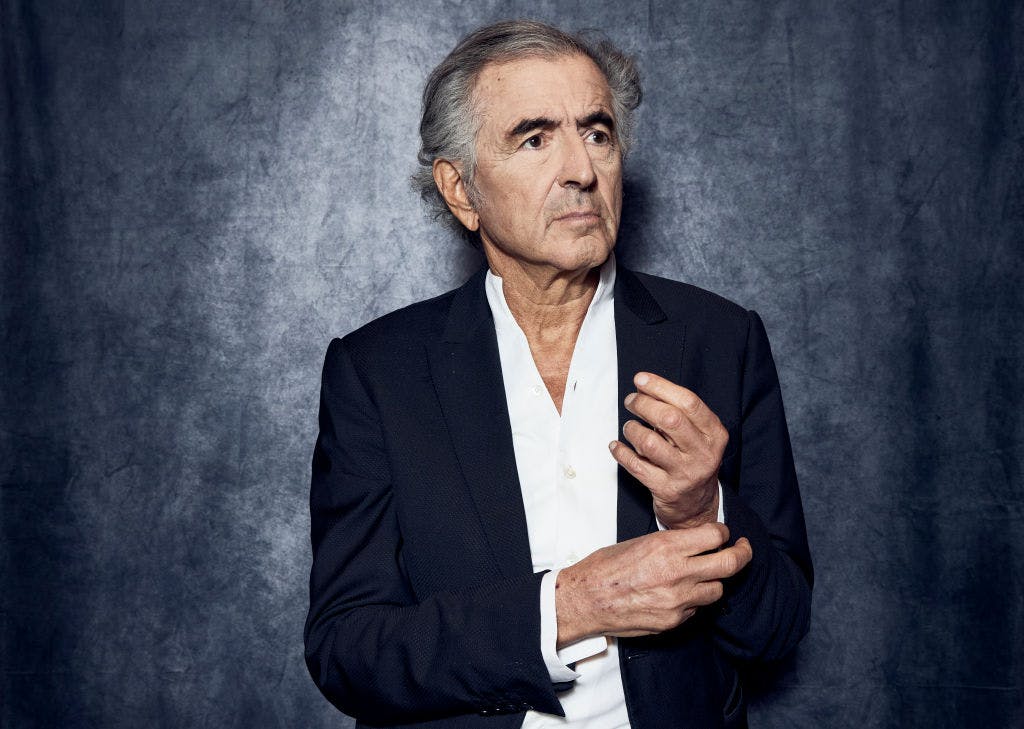Expel Russia From the Security Council
France’s intellectual superstar, Bernard-Henri Lévy, on an idea whose time has come.

It’s nice to see Bernard-Henri Lévy emerge for expelling Russia from the United Nations Security Council. He’s calling — in an op-ed piece in the Wall Street Journal — for reopening the decision, made in 1991, to give to the Russian Federation the seat and veto in the Security Council of the dying Soviet Union. Mr. Lévy would have the UN negate that decision and give the seat, and veto, to Ukraine.
Welcome to the fight, we say. We’ve been warning about the illegitimacy of Russia’s role in the security council since the start of the war. It was shocking how Ukraine was treated when it sought to make its case before the world body. It walked into the Security Council to complain about a prima facie violation of the UN charter being committed against it by Russia. The first thing Ukraine discovered was Russia was chairing the meeting.
And, Ukraine asserted, Russia wasn’t even a member of the UN. That’s because of what happened in December 1991, Mr. Lévy notes, when the Soviet Union collapsed. It was a founding member of the UN with a permanent Security Council seat. The USSR’s last last gasp was a letter to the UN from Boris Yeltsin, giving its seat to Russia. But that required formal action, given that the UN Charter is a Treaty with nearly 200 members.
The Charter language gives a permanent seat in the Security Council to “the Union of Soviet Socialist Republics.” Changing that would mean changing the Charter. That, the Charter itself ordains, means a two-thirds vote in the General Assembly, and ratification via the “respective constitutional processes” of two-thirds of the UN member-states, “including all the permanent members of the Security Council.”
In 1991 none of that happened. “Yeltsin’s letter was never formally discussed, neither by the Security Council, nor by the General Assembly,” Kyiv’s UN envoy, Sergiy Kyslytsya, told our Benny Avni earlier this month. News of the impromptu switcheroo was buried in the New York Times on December 25. The erstwhile Soviet envoy advised that the change “requires no further decisions by the Security Council or any other body.”
The envoy, Yuli Vorontsov, called it a “historic moment” and offered a “sample Russian flag” to fly “in place of the old Soviet flag.” On Christmas Day, President George H. W. Bush, perhaps in the spirit of the holiday, said America “welcomes the emergence of a free, independent and democratic Russia” and “will support Russia’s assumption of the U.S.S.R.’s seat as a permanent member of the United Nations Security Council.”
The sentiment doubtless reflected the magnanimity of the moment, when America’s struggle against communist Russia had seemed to end in victory. It suggested a new era of peace and evoked the prophet Isaiah’s words, etched in granite in Ralph Bunche Park across First Avenue from the UN: “They shall beat their swords into plowshares, and their spears into pruning hooks: nation shall not lift up sword against nation.”
Whatever prompted Bush to let Russia to stand in for the “Evil Empire” at Turtle Bay, he had no more authority to ordain this switch than the ex-Soviet envoy. As Mr. Lévy writes, “Russia’s permanent membership and the veto power it confers have no legal basis.” He proposes “to reopen the dossier and to re-examine the original power grab that laid the foundation for our current disorder.” We couldn’t agree more.
Which brings us back to Ukraine. Whatever one concludes about the decision making in 1991, it’s hard to see what role Russia could play in the world body in the generation to come. It may or may not be logical for the seat to go to Ukraine, though that is what Mr. Lévy suggests. “Memory permits it, morality wishes it, and an open debate among united and sovereign nations could decide it,” he contends. It would be a good cause for France.

